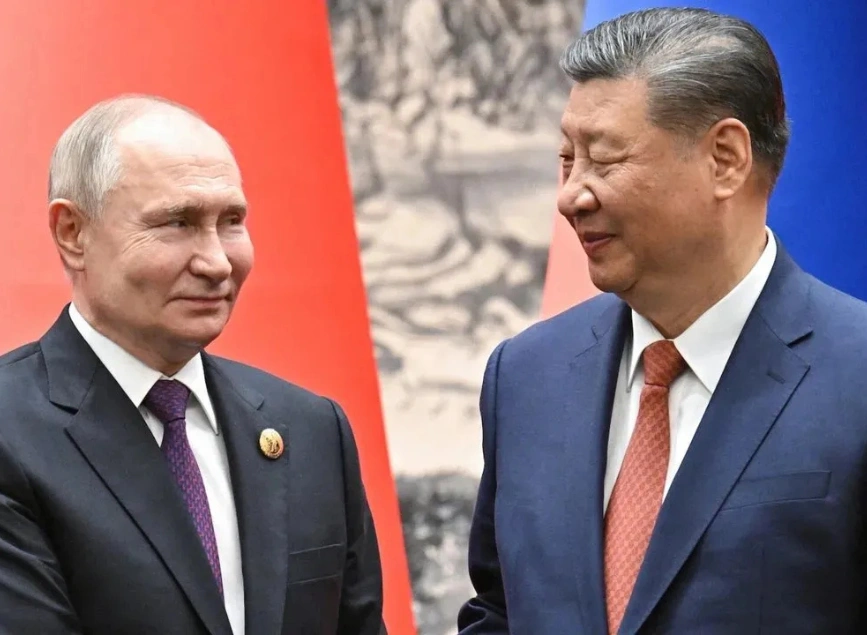
Bitcoin Enters Global Politics: China and Russia Settle Energy Trade with BTC
Bitcoin has officially entered the realm of global politics as China and Russia have started using it to settle energy trades. This shift represents a significant step in the ongoing trend of “de-dollarization” and shows that Bitcoin is no longer just a speculative asset. Instead, it has evolved into a legitimate tool for intergovernmental transactions.
The Geopolitical Earthquake in the Global Financial System
While the Trump administration imposed heavy tariffs on China (up to 125%) and threatened even more, China and Russia took a bold step toward de-dollarization by using Bitcoin to settle energy trades. This marks the first real-world implementation of Bitcoin as a tool for international trade, pushing both nations toward financial independence from the U.S. dollar.
Initial Market Reactions
After the announcement of new tariffs, Bitcoin initially dropped to $81,000. However, just one hour after news broke that China and Russia were using Bitcoin for energy trade, Bitcoin saw a quick surge of 5.6%, rising to $81,636.
VanEck Analysis: Bitcoin at the Center of a Historic Shift
In a new report titled “Digital Assets: De-dollarization Moves Bitcoin Towards Monetary Role”, VanEck’s Head of Digital Asset Research, Matthew Sigel, emphasized:
“Bitcoin is no longer a hypothesis; China and Russia’s use of it in energy transactions is an undeniable reality.”
This marks a fundamental shift in how Bitcoin is viewed within the global financial system. VanEck further states that Bitcoin has outperformed major indices like the Nasdaq in various time frames. With the ongoing weakness of the U.S. dollar, Bitcoin is increasingly becoming a safe haven for investors, especially those concerned about geopolitical risks and currency inflation.
Other Countries Following Suit
The use of Bitcoin in global trade is not limited to China and Russia. Several other countries are moving in the same direction:
Bolivia has announced plans to settle electricity imports using cryptocurrencies.
EDF, a French company, is exploring the idea of using excess electricity for Bitcoin mining.
Russia has already implemented Bitcoin and stablecoins in oil trade transactions, further solidifying its role as a practical tool in international trade.
Read More: What Does Lower Bitcoin-Ether Correlation Mean for Investments?
Bitcoin: From High-Risk Asset to Global Settlement Tool
Bitcoin’s role in international trade is evolving rapidly. Here are some key advantages that Bitcoin brings to the table:
Advantages of Bitcoin in Settling International Trade
No Need for Traditional Financial Infrastructure
Bitcoin operates independently of traditional international banking systems, allowing for more direct and efficient transactions.
Resistant to Dollar Sanctions
Bitcoin provides an alternative to the U.S. dollar, making it resilient against dollar-related sanctions.
Decentralized and Uncensorable
Bitcoin is decentralized, meaning no central authority can control or censor transactions.
High Liquidity and Growing Global Acceptance
As more businesses and governments adopt Bitcoin, its liquidity and global acceptance continue to rise.
The U.S. Dollar’s Decline
Meanwhile, the U.S. Dollar Index (DXY) has dropped by 7% since the beginning of the year and is currently hovering around 102.5. This decline further strengthens Bitcoin’s position as a “hedge” against the weakening of fiat currencies, particularly the U.S. dollar.
The Final Analysis: Cryptocurrencies on the Brink of a Historic Transformation?
In the words of Jane Foley, Senior Analyst at Rabobank:
“Trump threatened tariffs on countries intending to de-dollarize, but his isolationist policies have only strengthened this trend.”
What was once a bold and speculative idea is now rapidly becoming a strategic tool for maintaining financial sovereignty. Bitcoin is no longer just an investment vehicle; it has officially entered the domains of politics, energy, and global trade, signaling a shift that could redefine the future of international finance.
Share
Hot topics

What is a trading setup
Every trader experiences this: You access the chart; prices are moving up and down; you feel compelled to make a trade. Your thoughts switch back and forth from buying, selling,...
Read more




Submit comment
Your email address will not be published. Required fields are marked *